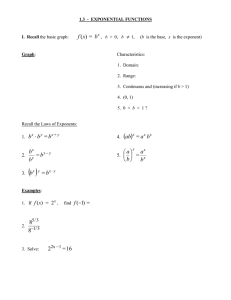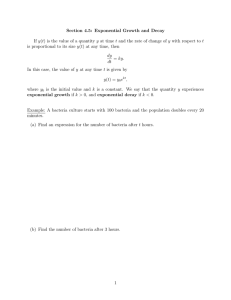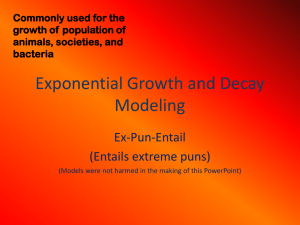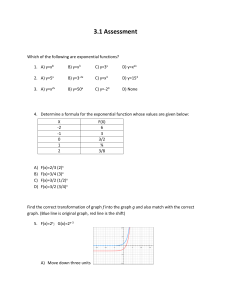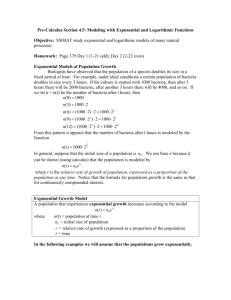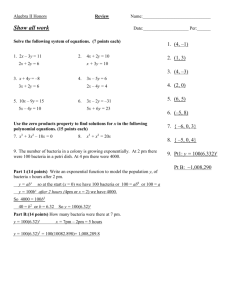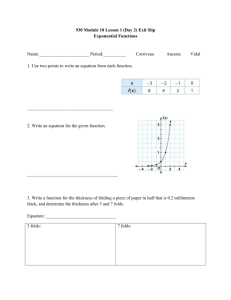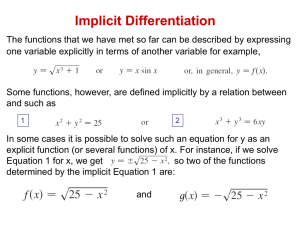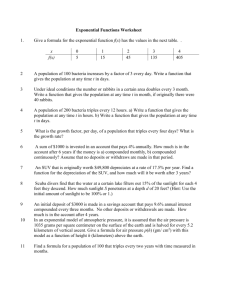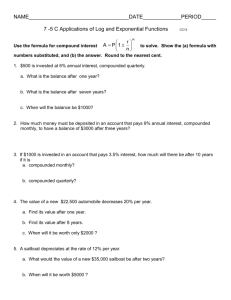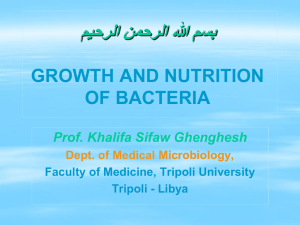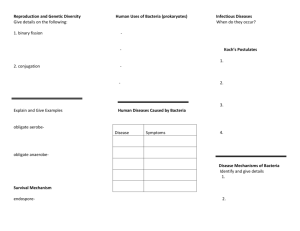MA112_WS5pt4 - University of South Alabama
advertisement
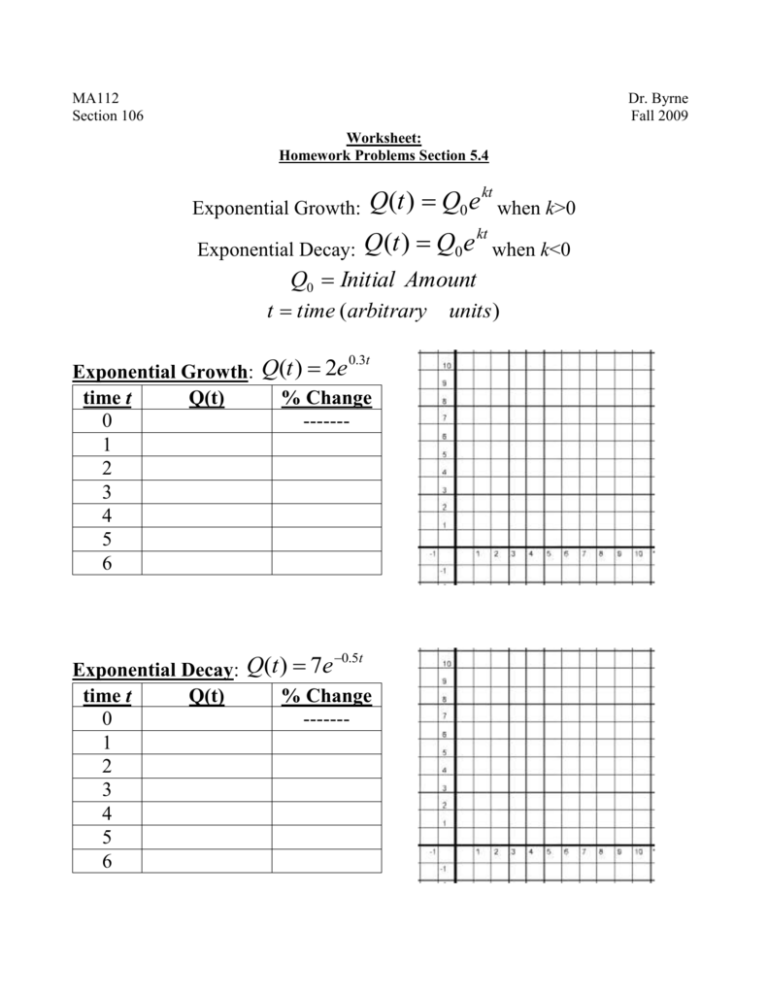
MA112 Section 106 Dr. Byrne Fall 2009 Worksheet: Homework Problems Section 5.4 Exponential Growth: Q(t ) Q0 e kt when k>0 Exponential Decay: Q(t ) Q0 e kt when k<0 Q0 Initial Amount t time (arbitrary Exponential Growth: Q(t ) 2e time t Q(t) % Change 0 ------1 2 3 4 5 6 0.3t 0.5t Exponential Decay: Q(t ) 7e time t Q(t) % Change 0 ------1 2 3 4 5 6 units ) 1. A bacteria culture starts with 2000 bacteria and the population doubles every 3 hours. a. Find an expression for the number of bacteria after t hours. b. Find the number of bacteria that will be present after 6 hours. c. When will the population reach 22,000? 2. Under ideal conditions, a cell of the bacteria Escherichia coli, commonly found in the human intestine, divides to create two cells in approximately 22 minutes. Assume the initial population is 275 cells. a. Find an expression for the number of bacteria after t hours. b. Find the number of bacteria that will be present after 6 hours. c. When will the population reach 22,000? 3. The bacteria in a culture increase from 500 at 1:00 P.M. to 4000 at 6:00 P.M. a. Find an expression for the number of bacteria t hours after 1:00 P.M. b. Find the number of bacteria that will be present at 7:00 P.M. c. When will the population reach 15,000? d. How long does it take the population to double in size? 5. The radioactive isotope thorium 234 has a half-life of approximately 578 hours. a. If a sample has a mass of 64 milligrams, find an expression for the mass after t years. b. How much will remain after 75 hours? c. When will the initial mass decay to 12 milligrams? 6. A certain radioactive substance has a half-life of 9 years. a. If a sample has a mass of 250 grams, find an expression for the mass after t years. b. How much of a 250-gram sample will remain after 18 years? c. How long will it take for 95% of the sample to decay? 10. Find the half-life of a radioactive substance that decays by 5% in 9 years. 7. A culture of bacteria doubles in size every 2 hours. How long will it take to triple in size? 12. The population of the world was approximately 6.3 billion in July 2003. Assuming that the population will grow by 2% in one year, estimate the following: a. When the population of the world will double. b. When the population of the world will triple. According to the US Census Bureau, the world population on November 16, 2009 is 6.8 billion. How does the actual rate of growth of the population over the last 6 years compare with the rate of growth assumed in this problem? Application: Compounded Interest Initial Investment: Interest rate: Number of years earning interest: A0 i t If the investment is compounded continuously, then the value of the investment after t years is given by: A(t ) A0eit 13. If $10,000 is invested in an account that returns 8% per year compounded continuously, how long will it take for the investment to (a) double and (b) triple? 14. If $25,000 is invested in an account that returns 7% per year compounded continuously, how long will it take for the investment to (a) double and (b) triple?
